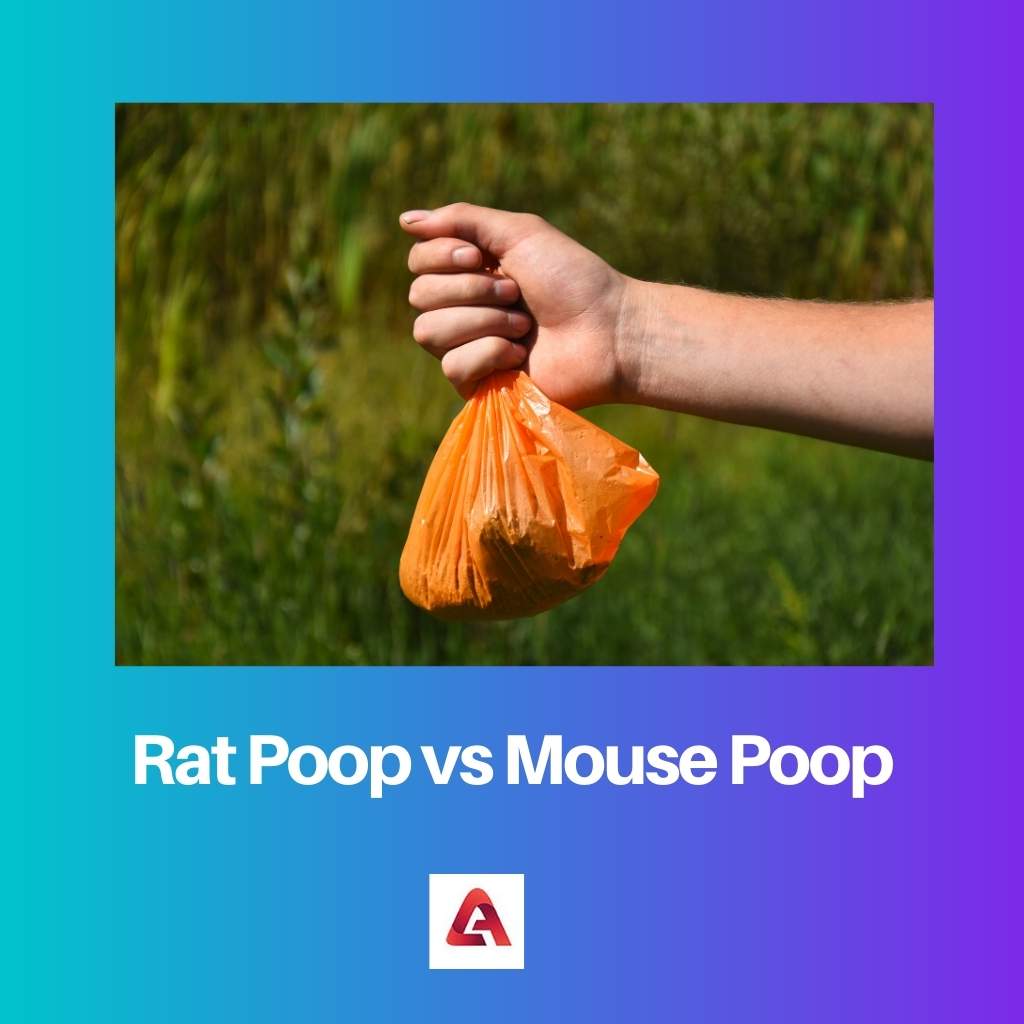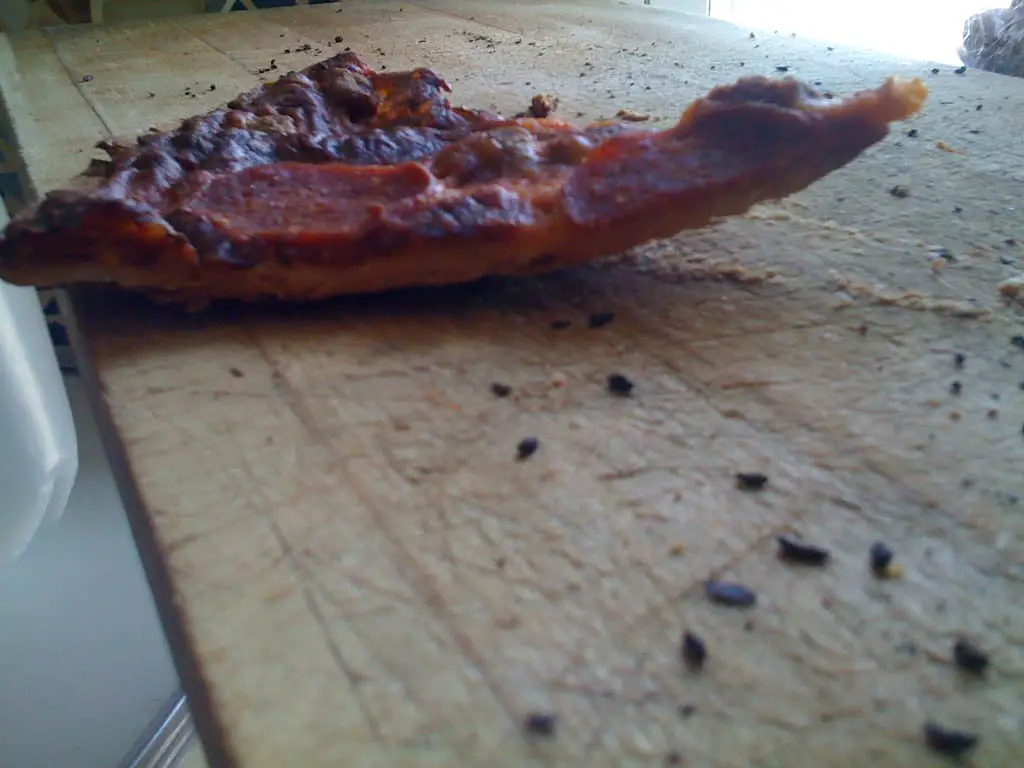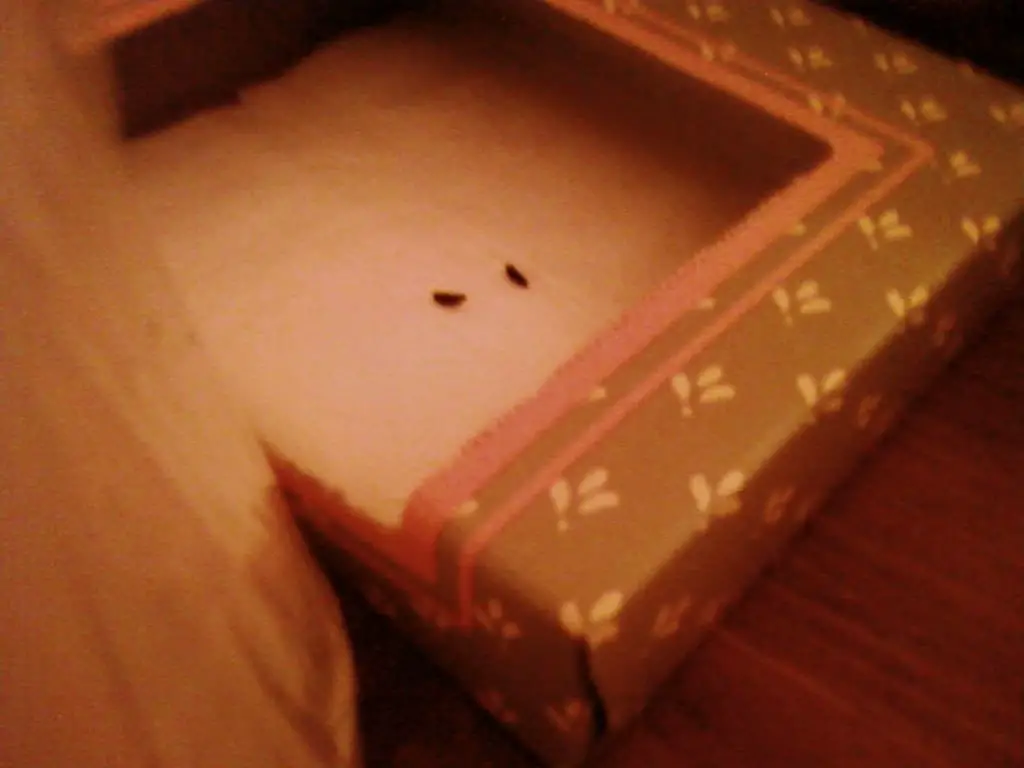A Rat poop and a Mouse Poop might seem similar to a normal person due to their almost similar appearance in size and color and their behavioural similarity, that both of them make their nest in the house attic.
But they are different in many aspects. Rat droppings are shiny black with almost a half-inch long in size.
On the other hand, mice droppings are comparatively smaller in size, with a smooth texture and pointed ends. They are 3-6 mm in length.
Key Takeaways
- Rat poop is larger and thicker than mouse poop.
- Rat poop has blunt ends, while mouse poop has pointed ends.
- Rat poop may contain food debris, while mouse poop is smooth.
Rat Poop vs Mouse Poop
Rat poop are large droppings of 20 pellets that have a curved sausage structure pointed at both ends. The faeces have a shiny texture. Mouse poop is shaped like a spindle that bends with an arch. They are small-seized droppings of 75 pellets found in the kitchen, sinks, and pantry area.

An average rat makes a maximum of 50 droppings a day. It is curved in shape with ends that are either pointed or sausage-like.
Rat poops may be found in any corner of the room, but in a garage, crawl space, basement, or the main floor rather than the upper floor.
Mouse poops are more pointed. They have a maximum of 75 droppings a day. They resemble dark grains of rice.
They are dark brownish-grey in color and are found inside the pantries, drawers, behind the food boxes, sinks, etc.
Comparison Table
| Parameters of Comparison | Rat Poop | Mouse Poop |
|---|---|---|
| Shape | Rat poop is curved in shape with sausage shape and pointed ends. | Mouse poop is spindle shaped and can bend with an arch. |
| Color | The fresh one is dark greyish brown while the old one is grey. | The fresh one is black, and the old one is grey. |
| Quantity | It depends on the size of the rat groups, but in general, it is 20 to 25 pellets. | Usually, 70 to 150 droppings are dropped at a time. |
| Location | It is found in garages, rooftops, sewers, basements, and other damp areas. | It is found under the kitchen sinks, inside the pantries, behind the food boxes, inside the drawers, etc. |
| Size | Rat Poop is comparatively larger than mouse droppings. | Mouse Poop is comparatively smaller in size than rat droppings. |
What is Rat Poop?
Rat droppings are larger in size when compared to mouse droppings. They are 3/4 an inch in length and have a curved shape. The ends of their droppings are either the shape of a sausage or are pointed.
The color of the fresh poop is different from that of mouse poop. The fresh rat poop is dark greyish brown, but just like that of a mouse, the old one becomes greyish in color.
The fresh ones also have a shiny texture. They are found in large groupings and take the size of an olive. Rat faeces are primarily found in a scattered manner.
They drop 20-25 pellets at a time, in the garages, rooftops, sewers, etc the dry feces can also become toxic for a healthy person.
The poop does not have much smell of its own, but when mixed with art, urine can give off a bad smell.
Rat droppings are very skinny pellets that are bulging at the centre. It has a length of 3/8 inch and a diameter of 1/8 inch. The sizes may vary depending on the rats.
The fresh rat poops resemble squirrel poop, with the only difference being that it is thinner and darker.

What is Mouse Poop?
The key difference between a rat poop and a mouse poop is their size. They are 1/4th inch long in size, which resembles a grain of rice that is tapered at both ends.
The color of a fresh mouse dropping is dark black, although the color might vary depending on what they have eaten. Since mice are nocturnal beings, it is very difficult to trace them.
They are capable of producing 70-75 pellets a day. In the extent of an infestation can be determined by the number of droppings found in an area. Mouse droppings are smaller in size compared to rat droppings.
They are spindle-shaped and can bend like an arch. Mouse build their nests near the food sources, and hence their droppings are found near the pantry, inside the kitchen, sinks, behind food boxes, and others.
Mouse poops have a wet texture with the consistency of a play dough. Only after a certain time do the droppings become hard and tend to lose their color.
They have pointed tips and are skinny as well. Each pellet is about 1/16 inch thick. The mouse droppings give out a pungent smell like ammonia.

Main Differences between Rat Poop and Mouse Poop
- Rat poop is curved with pointed and sausage-like ends, whereas mouse poop is a spindle in shape that can bend with an arch.
- The color of the fresh rat poop is dark in color, and that of a mouse is black. The old one is grey in both cases.
- Although the size of rat and mouse droppings are almost the same, a rat poop is slightly bigger in size compared to a mouse poop.
- The quantity of rat droppings depends on the size of the rat population. Generally, it is 20-25 pellets at a time, while for the mice, it is 170 droppings at a time.
- Rat droppings are found in garages, rooftops, sewers, basements, and other damp areas, whereas mouse droppings are more common in areas like under the kitchen sinks, inside the pantries, behind the food boxes, inside the drawers, etc.